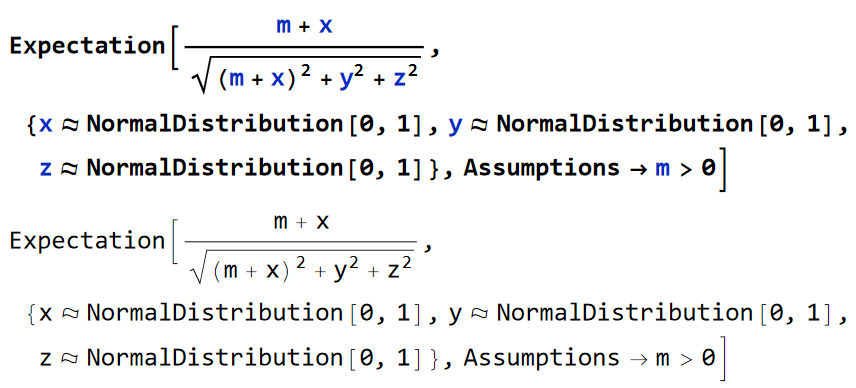I am interested in understanding the statistics of a specific distribution defined on the 3D unit sphere $\mathbb{S}^2$. The distribution in question arises from taking a 3D vector sampled from a Gaussian distribution centered at a point $\mu \in \mathbb{R}^3$ with a standard deviation $\sigma$, and then normalizing this vector to lie on the unit sphere. I refer to this as the extended projected normal distribution.
- Question 1: What are the first and second moments of this extended projected normal distribution in terms of $\mu$ and $\sigma$?
To simplify this problem, one could consider the 'standard' projected normal distribution, defined as the projection of a vector sampled from a 3D Gaussian distribution with $\sigma = 1$ onto the unit sphere.
- Question 2: If the first question proves too complicated, I would at least like to know the first and second moments of the standard projected normal distribution.
Approximate answers would also be very helpful. Any ideas, literature, or techniques to tackle this problem would be greatly appreciated.

